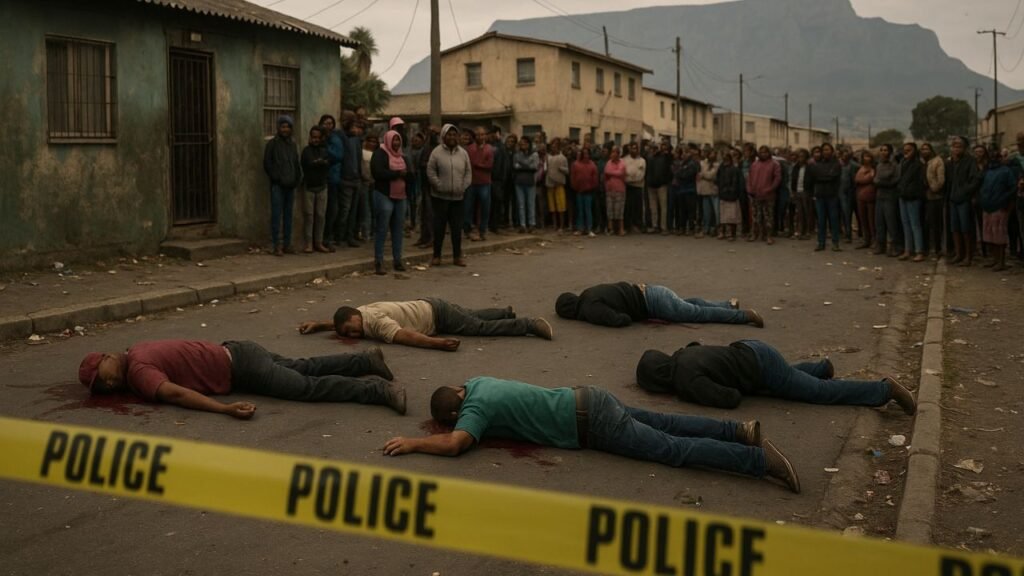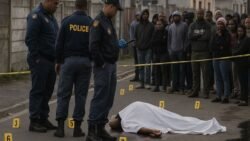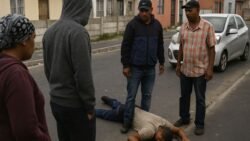Cape Town Gang Violence Escalates – Cape Town has once again found itself in the spotlight as a wave of gang violence escalates across several communities, leaving at least six people dead in just two days. Residents living in affected areas describe an atmosphere of constant fear, where daily routines are disrupted by the sounds of gunfire and the presence of heavily armed gangs. Reports suggest that the violence is concentrated in neighborhoods already struggling with unemployment, poor service delivery, and social unrest tied to frustrations around welfare systems like the South African Social Security Agency’s (SASSA) grant distribution. Local leaders argue that when essential services are delayed or disrupted, it creates fertile ground for criminal networks to exploit tensions. The recent surge in killings has sparked widespread debate, not only about policing and gang activity, but also about the social and economic pressures that fuel such conflict. Media coverage highlights both the human toll and the urgent need for long-term intervention from both government and community stakeholders [BBC News].

Gang Violence and Community Fear in Cape Town
Cape Town has long been identified as one of the most violent cities in the world, with gang-related crime being a major driver of its homicide rates. According to a recent UNODC report, South Africa consistently ranks high in per capita homicide statistics, and areas such as the Cape Flats are especially vulnerable. Residents report being caught in the crossfire of territorial disputes between rival gangs, where children and bystanders often become unintended victims. The violence has escalated to such a degree that schools and local businesses in certain districts have had to close temporarily, further weakening already fragile communities. Police presence has increased, but many argue that without addressing the underlying poverty and inequality that sustain gang recruitment, law enforcement alone cannot resolve the crisis. These events reflect broader challenges in South African society, where structural inequality continues to leave many communities vulnerable to cycles of crime and violence.
The Link Between SASSA Area Unrest and Violence
The South African Social Security Agency (SASSA) provides financial lifelines for millions, yet delays or disruptions in grant payments often stir deep frustration. Recently, protests have erupted in certain Cape Town neighborhoods after beneficiaries complained about not receiving their grants on time. This unrest has overlapped with the surge in gang violence, leading many to speculate about the connection between social insecurity and criminal exploitation. Studies from the Institute for Security Studies show that gangs frequently capitalize on social unrest, using community anger to consolidate control, recruit members, and enforce their authority. For vulnerable residents, gangs sometimes appear as alternative providers of income or security, further entrenching their influence. The overlap between welfare tensions and violence highlights the urgent need for coordinated responses that combine efficient grant distribution with strong community development. Without stability in social welfare systems, flare-ups of unrest are likely to continue feeding into larger cycles of violence across Cape Town.
Government Response and Policing Challenges
South African police have increased patrols in areas most affected by gang shootings, deploying specialized units to crack down on illegal firearms and criminal networks. Despite these efforts, critics argue that law enforcement often appears reactive rather than proactive. Recent reports from News24 reveal that communities frequently accuse the police of corruption, negligence, or slow response times, which erodes public trust. The government has attempted various interventions, such as the deployment of the South African National Defence Force in past years, but such measures provide only temporary relief. Long-term solutions require more than armed patrols—they require investment in social programs, job creation, and youth engagement to divert vulnerable individuals away from gang life. Analysts warn that without addressing systemic issues such as unemployment and inequality, Cape Town will remain caught in a cycle where violence erupts, authorities intervene, and the pattern repeats itself, leaving communities perpetually at risk.
Community Voices and the Path Forward
Amid the violence, community activists, religious leaders, and NGOs have stepped forward to demand lasting change. Organizations working in the Cape Flats emphasize the importance of grassroots efforts—mentorship programs, after-school activities, and trauma counseling—that provide safe spaces for youth vulnerable to gang recruitment. Local churches and advocacy groups also play a role by offering food support and creating networks of trust where the state has failed to deliver. As highlighted by Al Jazeera, many residents feel that true safety will come only through a holistic approach that combines law enforcement with social upliftment. This means reliable access to education, job opportunities, healthcare, and welfare benefits like SASSA grants. For Cape Town to break free from cycles of fear, stakeholders must prioritize both immediate security and long-term socio-economic reform. Only then can communities reclaim a sense of safety, dignity, and hope for future generations in one of South Africa’s most troubled urban landscapes.







